Articles by Kathryn Freeman
11 - 20 of 22 articles

Red Church, Blue Church: Why Christians Need to Avoid Hyper Partisanship
by Kathryn Freeman on September 6, 2018 in CLC
During the Texas Baptist Family Gathering, I led a workshop about how Christians can steward their public witness in an age of increasing tribalism. While the workshop room was packed, I think there are lessons from my workshop that deserve a broader audience because I am increasingly alarmed by the polarization in the church and what it is doing to our ability to make disciples. Many Christians are struggling within themselves to keep their partisan identities secondary to their identities as followers of Jesus Christ and it has lead to increased conflicts among believers.
According to a recent report by Lifeway, more than half of Protestant churchgoers under age 50 say they prefer to attend church with people who share their political views and few churchgoers say they attend services with people of a different political persuasion.
The increased partisan rancor in our country will have dire consequences. The church is following the culture rather than modeling how those of different political inclinations, races, genders, socioeconomic backgrounds can work together for the common good.Christians are increasingly moving to opposing corners based on politics, and our churches and our gospel witness is suffering because we have put our allegiance to our political parties before our allegiance to Christ and each other.
Unity does not mean uniformity. Democrats and Republicans -- not to mention partisans from Europe, Africa, Asia, and South America -- will be in heaven. Civic engagement and advocacy are important parts of what it means to be an American citizen, but we are first citizens of another kingdom, and must keep things in their proper order.
My pastor’s wife puts it this way, “Keep the main thing the main thing.” We are so beholden to our respective political parties we have lost sight of the main thing, namely the kingdom of God and our responsibility to make disciples.
Here are four pitfalls of the partisan trap for Christians and some suggestions for avoiding them.
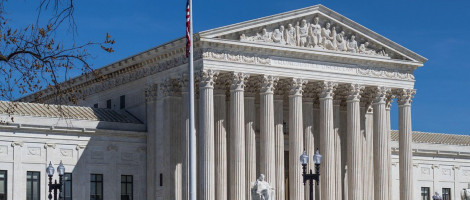
Masterpiece Cakeshop v Colorado Civil Rights Commission Explained
by Kathryn Freeman on June 5, 2018 in CLC
Monday, the Supreme Court decided Masterpiece Cakeshop v Colorado Civil Rights Commission in a 7-2 decision in favor of Masterpiece and its owner, Jack Phillips. While Phillips asked the Supreme Court to consider his First Amendment rights to freedom of speech and free exercise of religion, the Court actually only addressed his free exercise claim.

From Revolving Door to Highway of Redemption: The Church’s Response to 'Second Chance Month'
by Guest Author on April 23, 2018 in CLC
By Caleb Seibert
This month, the Christian Life Commission joined Gov. Greg Abbott and several groups to declare April “Second Chance Month” for formerly incarcerated individuals. Second Chance Month is an opportunity to highlight the challenges of formerly incarcerated individuals and their families and to share stories of redemption for those who have successfully overcome their criminal pasts.
Nearly 70,000 people are released from Texas state prisons every year, but most churches have little to no interaction with them. These people and their families often face a mountain of obstacles to re-entry ranging from work barriers and criminal debt to the deep stigmatization that comes with their past experiences.
Research by Lifeway Publishing in Nashville seems to echo this sentiment. After polling 1,000 Protestant churches, Lifeway found that 31 percent said no former inmates attended their church, 36 percent said one or two former inmates attended, and only 33 percent indicated three or more former inmates attending their church.
Hebrews 13:3 says to “remember those who are in prison, as though you were in prison with them.” How can Christians remember those who are in prison and those who have been released?
Here are four practical suggestions for ministry . . .
Texas Baptist CLC joins with Prison Fellowship to recognize April as Second Chance Month
by Kalie Lowrie on April 16, 2018 in CLC
The Texas Baptist Christian Life Commission has partnered with Prison Fellowship and more than 150 other organizations to recognize April as Second Chance Month, in remembrance of the 65 million people with a criminal record with limited access to education, jobs and other opportunities.
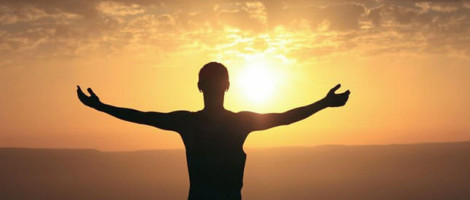
Thanks anyway
by Kathryn Freeman on November 21, 2017 in CLC
Charlottesville. Las Vegas. Hurricane Harvey. Hurricane Maria. Sutherland Springs. These are the national crises we have faced as a nation just in the last six months. Not to mention the personal crises that may be enveloping you, your ministry, and your family that no one sees. It feels like we are limping to the end of 2017. Yet, somehow in the midst of all these things, we will stop and give thanks on Thursday.
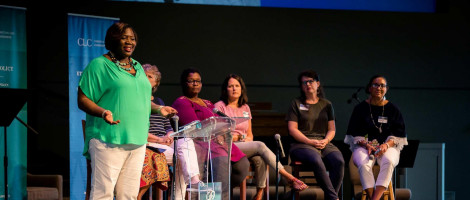
CLC’s One conference encourages unity and racial reconciliation among Christians
by Kalie Lowrie on September 8, 2017 in News
More than 175 Texas Baptists gathered Aug. 26 to pursue racial healing in the wake of a turbulent year of clashes between white, black, and Hispanic Americans.
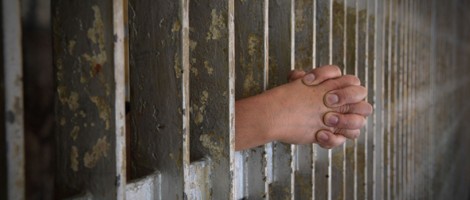
Finding freedom in prison
by Analiz Schremmer on April 20, 2017 in Faith
Prison isn’t a place where people expect to find freedom. But that’s where it happened for Lovinah Igbani.
Pro-life legislation supported by leading pro-life coalition
by Kathryn Freeman on April 17, 2017 in Christian Life Commission
Four major pro-life organizations representing more than 10 million Texans have announced support of key bills before the House chamber of the 85th Texas Legislature.
Answering the call to justice
by Matthew Porter on October 6, 2016 in CLC
“I am in Birmingham because injustice is here.” These words are from Dr. Martin Luther King, Jr’s famous “Letter from Birmingham Jail,” in which he challenged fellow clergy to get off the sidelines and get involved in the struggle for equality and justice.
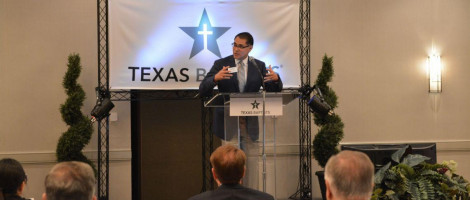
Executive Board hosts graduation of emerging young leaders, revises administrative support policies
by Communications Staff on May 25, 2016 in News
On Monday night of the May 23-24 Executive Board meeting of the Baptist General Convention of Texas, ten individuals received trophies and certificates of graduation from the first cohort of Leadership Texas Baptists.